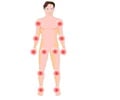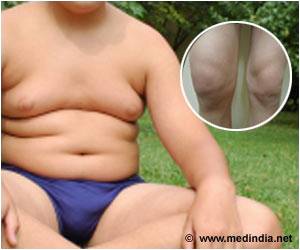High risk for disorders is seen five years after detention, in juvenile offenders with multiple psychiatric disorders, when they are incarcerated in detention centers.

Karen M. Abram, Ph.D., of the Northwestern University Feinberg School of Medicine, Chicago, and co-authors looked at patterns of comorbidity (the presence of two or more disorders), how they change over time and what the odds are that a young person with a disorder at detention will have the same disorder three and five years later. The authors used data from a group of 1,829 young people (1,172 males and 657 females; 1,005 African American, 296 non-Hispanic white, 524 Hispanic and four of other races/ethnicities) at a Cook County, Ill., juvenile detention center between 1995 and 1998. They had follow-up interviews between 2000 and 2004.
Results show that five years after detention (when the average age of the young people in the study was 20 years) almost 27 percent of males and 14 percent of females had two or more psychiatric disorders. In males, the most common psychiatric disorder profile was substance use plus behavior disorders, which affected 1 in 6 males. Among young people who had three or more psychiatric disorders at baseline, almost all the males and three-quarters of the females had one or more disorders five years later.
"Many psychiatric disorders first appear in childhood and adolescence. Early-onset psychiatric disorders are among the illnesses ranked highest in the World Health Organization's estimates of the global burden of disease, creating annual costs of $247 billion in the United States. Successful primary and secondary prevention of psychiatric disorders will reduce costs to individuals, families and society. Only a concerted effort to address the many needs of delinquent youth will help them thrive in adulthood," the researchers conclude.
Source-Eurekalert
 MEDINDIA
MEDINDIA




 Email
Email









